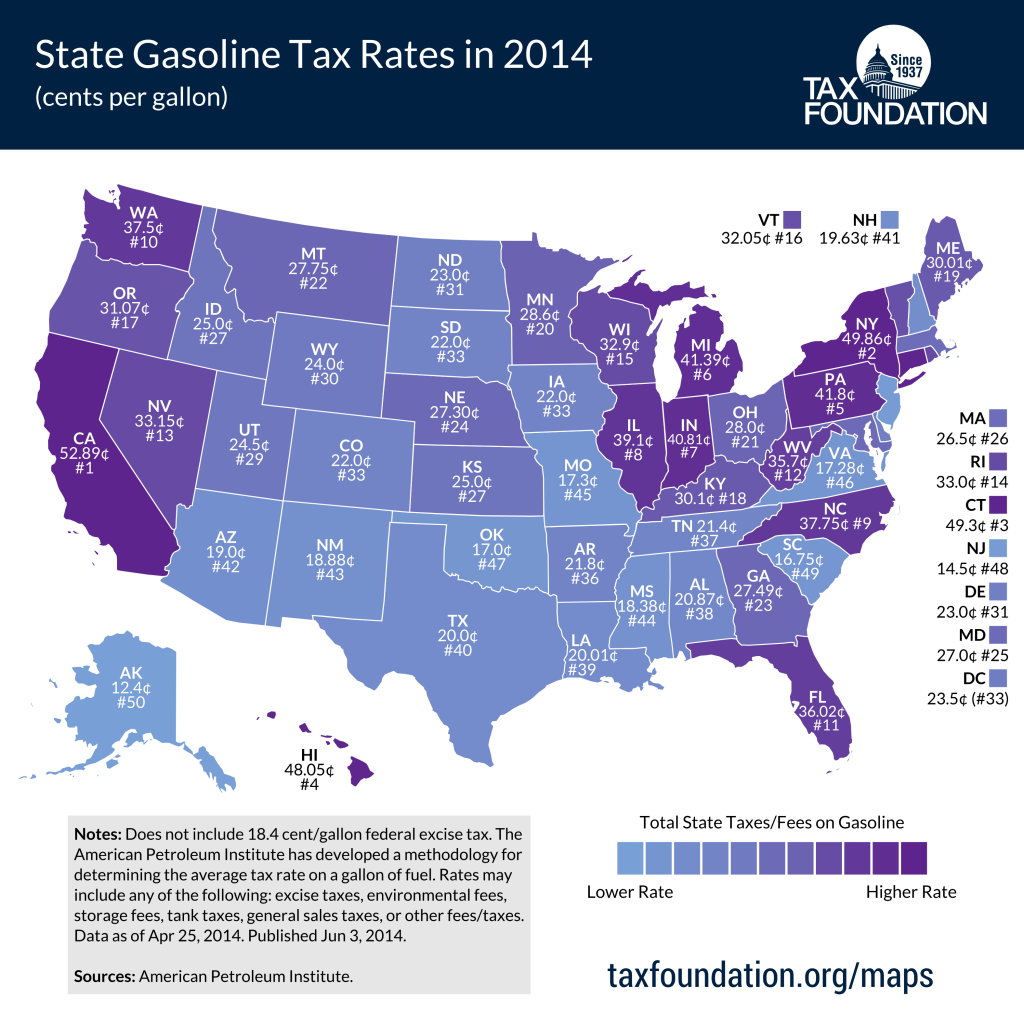Sacramento hits the gas on driving taxes
by James Poulos | September 12, 2014 4:13 pm
 Within a few years, California may choose to tax drivers by the mile. Taking up a controversial idea floated by the federal government and embraced by Oregon, Sacramento legislators recently passed a bill that could lead to a new “road usage charge.”
Within a few years, California may choose to tax drivers by the mile. Taking up a controversial idea floated by the federal government and embraced by Oregon, Sacramento legislators recently passed a bill that could lead to a new “road usage charge.”
Senate Bill 1077[1] wouldn’t impose a driving tax right away. Instead, the legislation, introduced by state Sen. Mark DeSaulnier, D-Concord, would create a special group tasked to evaluate the tax. Through the California Transportation Commission, SB1077 would establish a Road Usage Charge Technical Advisory Committee. The committee would draft a driving-tax pilot program for the state Transportation Agency.
Taking the committee draft into account, the agency then would implement a final pilot program by Jan. 1, 2017. Finally, by June 30, 2018, the agency would formally report on the results of the program to the assorted committees involved.
The driving tax next door
With that four-year timetable, California legislators have opted to proceed at a measured pace. But in the Golden State and elsewhere, political interest in taxing drivers per mile has accelerated quickly. In Oregon, for instance, a pilot program has already been launched. Last year, Rep. Earl Blumenauer, D-Ore., floated a miles-driven tax; now, the scheme has begun to draw signups from citizen volunteers.
Oregon legislators decided to aim for 5,000 participants in the pilot program, the better to determine which method of mileage calculation to adopt. Initially, civil liberties groups bridled[2] at potential calculation methods that relied on GPS readings, which could be accessed by law enforcement without a warrant. But Oregon moved away from those options, and the ACLU and others got on board with the program.
An infrastructure problem
Oregonians, especially along the Pacific Coast, have earned a reputation for small-footprint environmentalism. Their turn toward a driving tax, however, has been motivated by other factors. Like other states around the country, Oregon was recently forced to grapple with an unforeseen problem.
Despite a stopgap infusion of $11 billion, the federal government announced it will soon run out of money for its Highway Trust Fund. The federal gas tax has lost 40 percent of its value thanks to inflation; meanwhile, many state gas taxes have wound up in a situation nearly as bad, according[3] to USA Today.
The weakening of gas tax revenues has teed up an unusual problem. Americans have long expected the quality of their highways to be maintained — free of tolls in most places — but they haven’t wanted to pay more. Although inflation has hurt the gas tax, the cost of gas has gone up, and basic foodstuffs have become more expensive over the same time period.
The problem could be solved by simply indexing state and federal gas taxes to inflation. But because the price of a gallon of gas is not indexed that way, Americans would be disincentivized to drive as much as they did before the tax increases.
Adding to policymakers’ woes, the rise of hybrid and electric vehicles — especially on the West Coast — has already chipped away significantly at gas-tax proceeds, with further erosion in sight. For example, because it’s entirely electric, a Tesla S pays no gas taxes.
That’s why Rep. Peter DeFazio, D-Ore., put forth a proposal to kill the federal tax at the pump and replace it with a per-barrel tax on oil, also indexed to inflation. With that approach, DeFazio argued[4], consumers would be sheltered from the direct impact of new taxes, as oil companies wouldn’t be able (or perhaps willing) to pass all the costs onto their customers.
Whatever the relative merits of the idea, DeFazio’s proposal hasn’t caught on in Congress. What’s more, it hasn’t captivated policy experts, who have enthused about the behavior-shaping potential of mileage taxes.
A system based on electronically calculated mileage would allow policymakers the theoretical power to calibrate driving taxes based not just on raw miles driven, but on routes, congestion and other factors. From that standpoint, the real potential of a driving tax would be as the first mile in a new expansion of government control over drivers’ activities.
- Senate Bill 1077: http://leginfo.legislature.ca.gov/faces/billNavClient.xhtml?bill_id=201320140SB1077
- bridled: http://www.usatoday.com/story/news/nation/2014/08/14/stateline-gas-tax-alternatives/14052487/
- according: http://www.usatoday.com/story/news/nation/2014/08/14/stateline-gas-tax-alternatives/14052487/
- argued: http://registerguard.com/rg/opinion/32106792-78/congress-runs-out-of-gas.html.csp
Source URL: https://calwatchdog.com/2014/09/12/sacramento-hits-the-gas-on-driving-taxes/